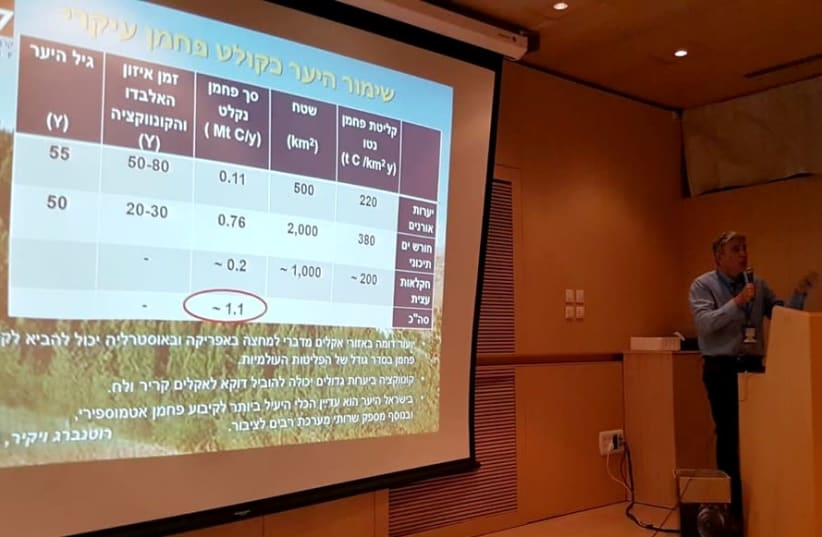In his address at the conference, KKL-JNF Head Scientist Dr. Doron Markel said that the most important task we face is the absorption of carbon from the atmosphere, and that forests are the answer to climate change. “Climate change in Israel and in the Middle East will lead to a decrease in the amounts of rainfall and increased heat. This will demand strong action on behalf of the state to decrease emissions and increase carbon sequestration, along with preparing for the expected changes in climate and increasing awareness of the problem amongst the general public,” Dr. Markel said. According to Dr. Markel, KKL-JNF, as Israel’s most significant environmental organization, is leading the effort against climate change. The organization is active in a number of fields: protecting KKL-JNF forests, which serve as carbon sequesters, advancing the use of solar energy and means of storing it, adapting the forest to climate changes, improving Israel’s water balance and monitoring and research on the influence of the climate on natural systems.
Dr. Markel explained that KKL-JNF forests are the only tool in Israel that absorbs carbon, and that at present, the forests absorb about one million tons of carbon annually (about 3.7 tons of carbon dioxide), which amounts to about 5% of the total amount of carbon that is emitted - an amount that will only increase in the future. He noted that one quarter acre of the Yatir Forest in the Negev absorbs the same amount of carbon as one quarter acre of European forests. Galilee forests are even more effective in carbon absorption.
Markel elaborated that in the field of renewable energy, KKL-JNF is leading a strategic plan (in cooperation with the Heschel Center) for renewable solar energy with no carbon emissions, which will be implemented in regional councils throughout Israel, on public and agricultural lands.
Dr. Markel noted that in addition to protecting the forests, KKL-JNF invests in adapting the forests to climate change by finding strains of trees that are resilient to dry conditions, and by thinning forests to make them adaptable to decreased rainfall. In addition, KKL-JNF works to improve Israel’s water economy by building facilities to harvest winter runoff. One example is the building of biofilters, which harvest urban floodwater, filter and purify it through biological processes, and channel the purified water to one of the underground aquifers. Another example is the rehabilitation of winter ponds.
In the field of research, KKL-JNF works to develop renewable energy sources in light of studies on the influence of climate change on natural systems. Dr. Markel added that KKL-JNF is advancing plans to increase public awareness of pollution. The organization will soon launch an extensive campaign under the slogan “Disposable utensils? Not in my Forest”, calling on the public to refrain from using single-use tableware in KKL-JNF forests.
